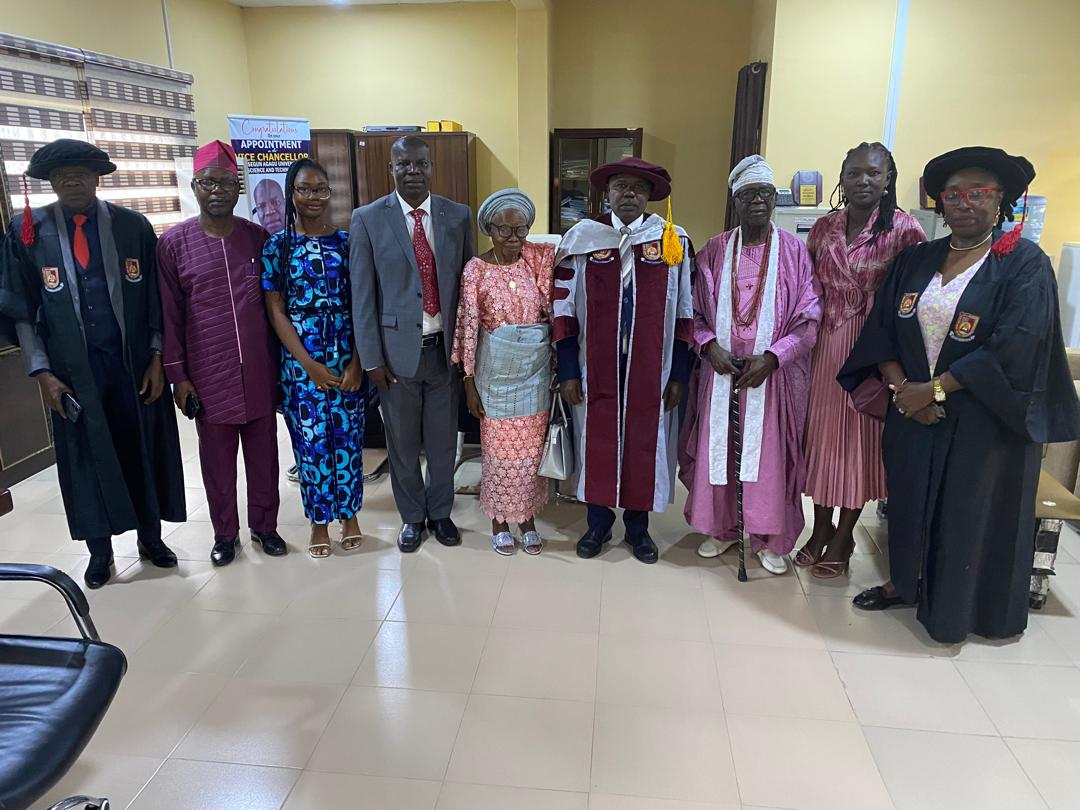In a striking declaration, Prof. Foluso Olutope Adetuyi, a leading food biochemist at Olusegun Agagu University of Science and Technology (OAUSTECH), has urged Nigerian governments and stakeholders to make substantial investments in food storage and processing facilities.
This, he argued, is crucial to prevent the staggering losses of food that plague the nation and to enhance food security for farmers and consumers alike.
The call came during OAUSTECH’s 8th Inaugural Lecture on Wednesday, 27th August 2025, where Prof. Adetuyi, who serves as the Deputy Vice-Chancellor (Academic and Research), pinpointed the root of Nigeria’s food crisis.
The academic heavyweight asserted that the nation’s problem isn’t merely a lack of food production but rather the absence of adequate storage and processing capabilities that lead to significant food loss.
“The efforts of successive governments and administration since 1970s had been on food security and more and more productions, whereas when you produce and do not store and process appropriately, you lose it,” the researcher stressed.
Elaborating on the severity of the issue, he revealed that globally, one-third of food produced for human consumption is lost or wasted annually, highlighting that approximately 1.3 billion tonnes of food vanish due to inefficiencies at various stages of the food supply chain.
“This is due to the fact that freshly harvested agricultural produce are living things that breathe and undergo physiological changes during post-harvest handling. Losses of quantity (weight or volume) and quality (altered physical characteristics) can occur at any stage in the post-harvest chain and treatment,” he asserted.
“Shocking statistics flowed from his lecture: Nigeria loses over $750 billion worth of food each year, which equates to about 30-40% of the produce due largely to insufficient storage and processing facilities.
“The figures are alarming, as surveys indicate losses of 20-30% in grain production, while root and tuber losses reach 30-50%, with fruits and vegetables seeing even higher wastage rates.
“Tomatoes have the largest total loss rate of 76%, maize loss is 25%, with the greatest losses occurring during the first three stages of the value chain. It was reported that tomato farmers in Nigeria lost over 10 billion US dollars in 2018. It is estimated that up to 50% onions are lost yearly. The major problems causing food loss and waste are improper handling, lack of proper storage, processing, packaging and transportation among others,” Adetuyi insisted.
The former Director of Academic Planning and Quality Assurance highlighted the critical need for preservation and processing, stating that these factors are fundamental for a dependable food supply year-round.
He urged immediate and robust investment from governments at all levels, emphasizing, “Investing massively in storage and processing facilities will not only prevent spoilage but also help stabilize food prices and diversify the family menu.”
Adetuyi’s recommendations included granting farmers access to funds for modern technologies, strengthening research links to ensure innovations benefit local farmers, and revitalizing agricultural research centers, especially the Nigeria Stored Product Research Institute (NSPRI).
He also called for public awareness campaigns through both traditional and social media to tackle post-harvest losses and promote proper food storage techniques.
In related remarks, Prof. Temi Ologunorisa, the 4th substantive Vice-Chancellor of OAUSTECH, reinforced the urgency of the matter, noting the lecture’s insights into the systemic issues causing food insecurity in Nigeria.
“In my opinion, the Nigeria Government should pay attention not just to food production, but to suitable storage and processing facilities to reduce losses. Mangoes are produced, nowhere to store or process them, they get rotten and spoiled. The same with oranges, tomatoes, vegetables and many other fruits and food items. Therefore, production is not our problem, but proper storage and modern processing facilities,” Prof. Ologunorisa reechoed.
Attendees at the lecture included academics, industry leaders, farmers, and OAUSTECH staff and students, all united in the pursuit of solutions to Nigeria’s food scarcity crisis.







